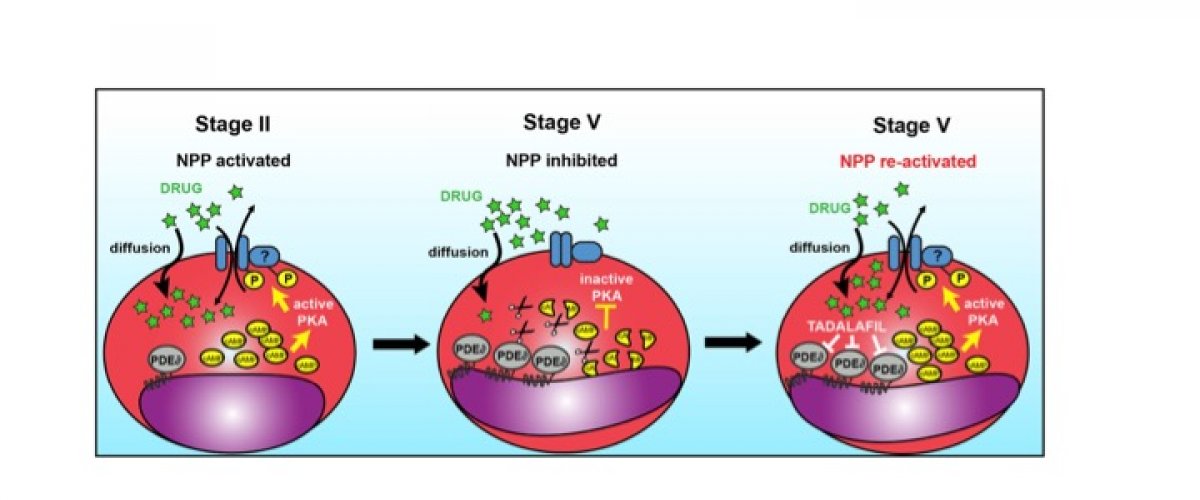

During its complex life cycle, the malaria parasite Plasmodium falciparum invades and multiply asexually within human erythrocytes. Under various conditions, instead of asexual divisions, sexual forms called gametocytes differentiate within erythrocytes in 10-12 days and will fuse in the stomach of the mosquito after a blood meal. To ensure the transport of nutrients and metabolic wastes necessary for their survival, the parasite increases erythrocyte permeability to diverse solutes. These New Permeation Pathways (NPPs) have been extensively characterized in the pathogenic asexual parasite stages, however the existence of NPPs has never been investigated in gametocytes where they were thought to be absents.
In a collaborative study with the group of C. Lavazec at Cochin Institute (Paris), the group Physiology and Cell Fate from the SBR shows that i/ NPPs are still active in erythrocytes infected with immature gametocytes ii/ this activity declines along gametocyte maturation and is under the dependence of cyclic AMP signaling cascade, whose activity is also inversely correlated with gametocyte maturation iii/ the cAMP pathway and thus the NPPs can be pharmacologically re-activated in mature gametocytes and provide a route for artemisinin derivatives, for which mature gametocytes are refractory leading to a therapeutic impasse in the transmission of the parasite.
These processes are predicted to play a key role in P. falciparum gametocyte biology and susceptibility to antimalarials.

bibliographY
Plasmodium falciparum sexual parasites regulate infected erythrocyte permeability
Communications Biology
DOI : 10.1038/s42003-020-01454-7
Lien vers l’article https://www.nature.com/articles/s42003-020-01454-7
Links
[1] https://www.nature.com/articles/s42003-020-01454-7